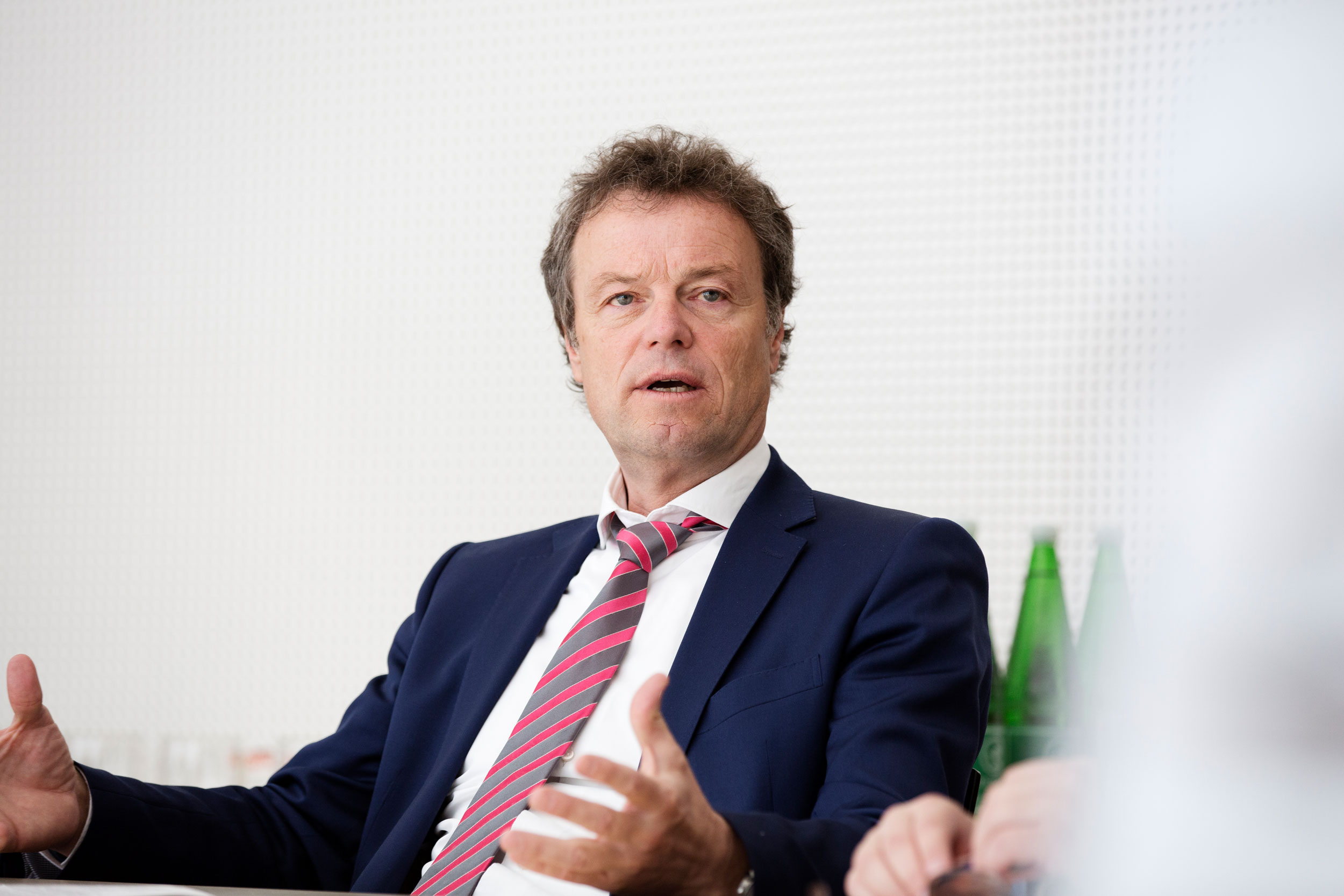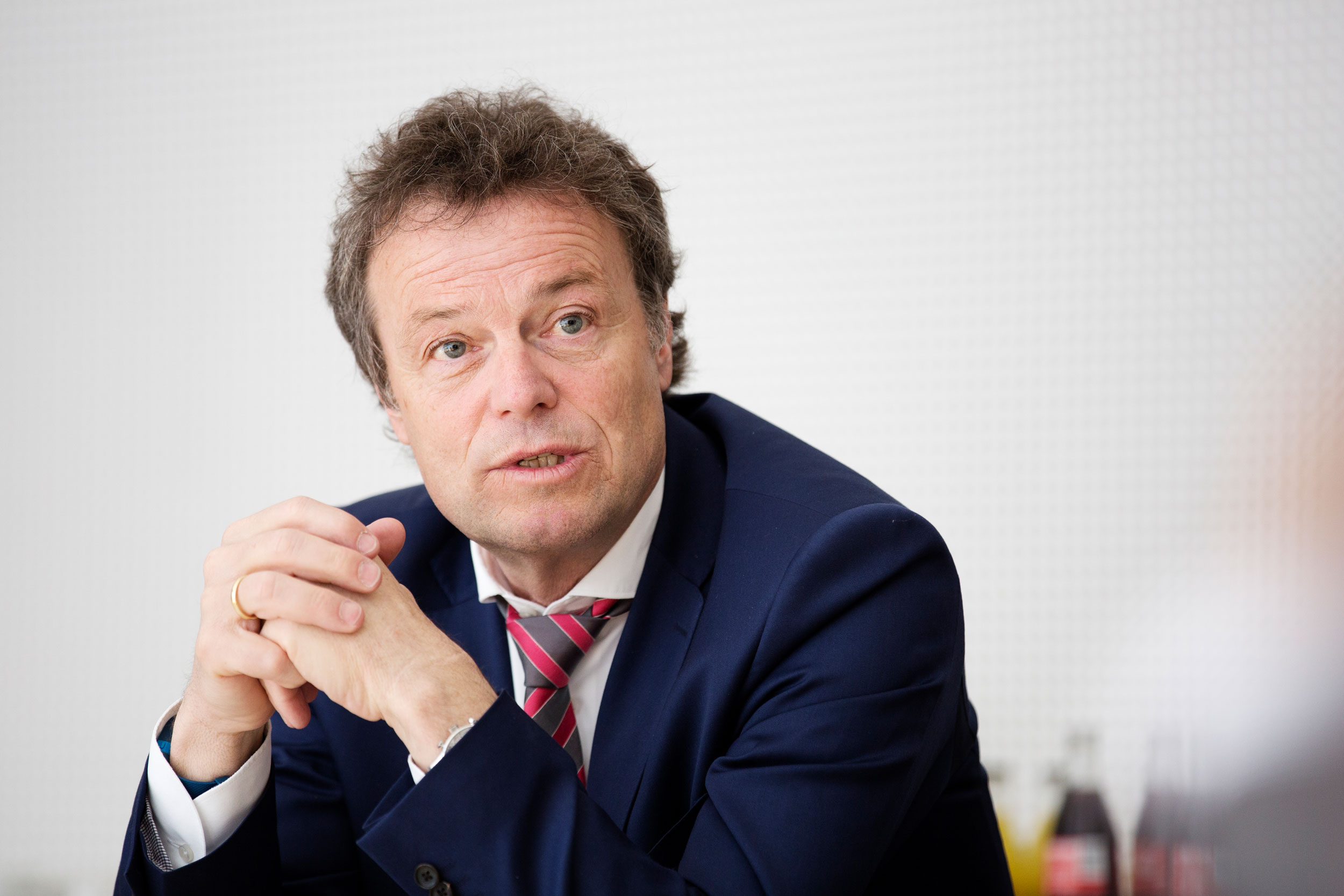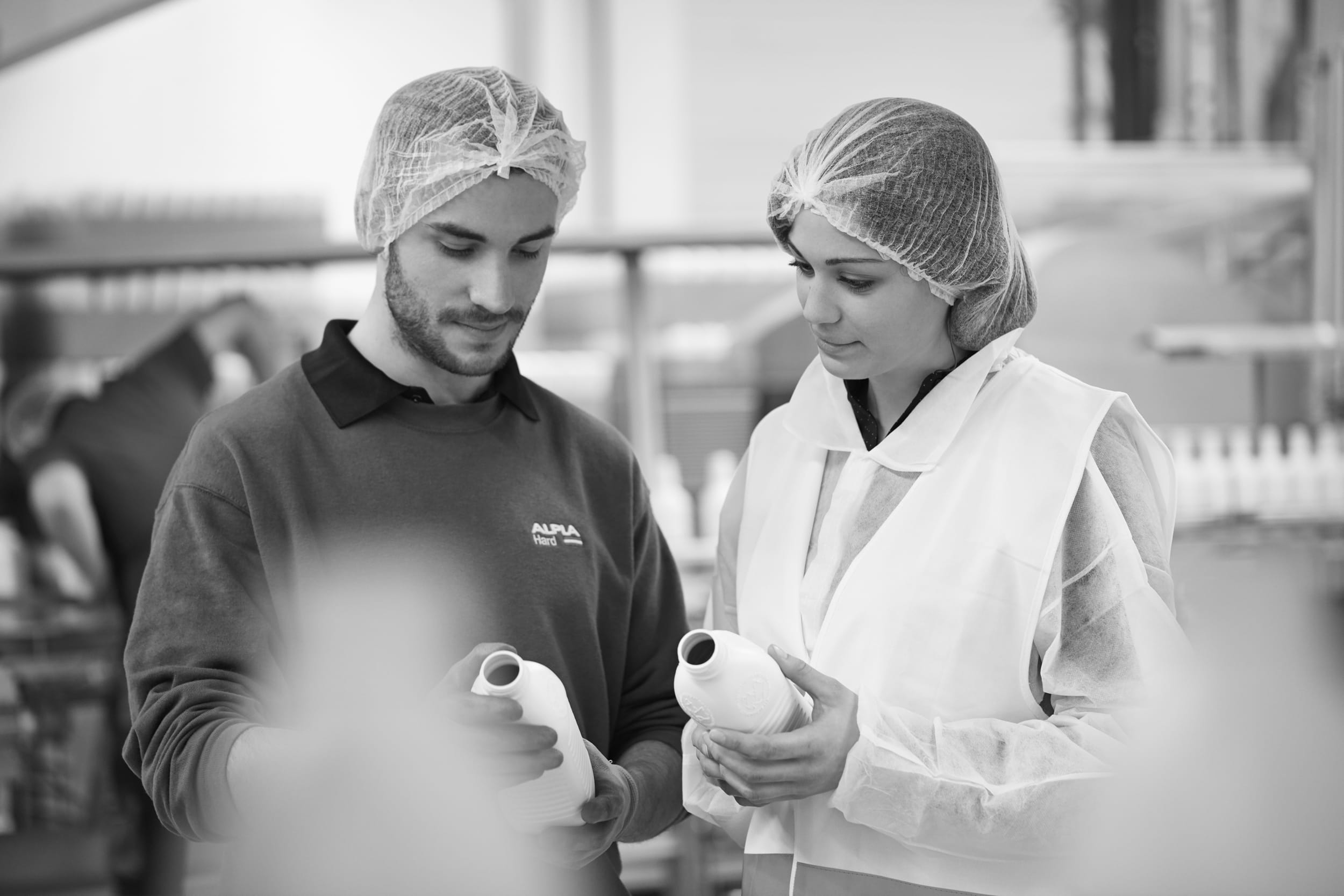is only the supply chain''

Our company was founded in 1955, Alplamat came a little later. We started with injection moulding, since then we have been a manufacturing company. Thanks to Alplamat, the bottle business started at the beginning of the 1960s – and we were there from the very beginning.
When I joined the company in 1992/2006, there were of course other challenges: Alplas growth and internationalisation. We wanted to be successful as a global company and have subordinated everything to expansion into other continents. This enabled us to establish our own production facilities from Argentina to China.
That was actually always clear. There was an expectation that I was the oldest of the second generation. Anyway, I soon saw in which direction it would go.
Yes, there are. My son has been with the company for five years, four of which he has been in charge of our production in the USA. Since the beginning of this year, he has been back and part of our new, expanded, management team. We will continue as a family-run company in the future.
I think it’s in our DNA. As a company that builds on technological know-how, as a technology leader, we must, of course, leave room for tinkering and allow innovations to be lived. After all, we are deeply rooted in everything technical, with our own toolmaking, with special machines, with special developments that we carry out, and so on. Our customers don’t see us purely as a commodity producer, but as a generalist who develops and implements complex projects.
Alpla is divided into regions: We have clustered countries and are currently working on eleven areas worldwide. The responsible regional managers are very close to the respective market and report important decision bases directly to me. In the new management, we now have responsibility for sales, operations, finance and technology. They are involved in the respective decision-making processes.
Yes, there are also external ones, but less so for new business decisions. We add external ones if we start some restructuring or optimization and make too little progress. Then we call on Syngroup to help us achieve our goals more quickly, more purposefully and more impartially.
It’s about implementation, about analyzing things in depth, about making structures so transparent from an external perspective that decisions can be made.
We have been working with Syngroup for a long time, depending on where and how we evaluate issues and where we see weaknesses. Then we gladly take Syngroup teams on board in order to make connections transparent and to have valid bases for decision-making.

We started this process at a very early stage in order to prepare our information in a meaningful way. We have to retrieve data from machines and make it transparent. And we have complete production chains where several plants are linked to each other. This has resulted in the compelling necessity of working with operationally measurable parameters. It was worth it that we did everything we could to achieve this: Today, we can handle this volume of data significantly better than 10 or 20 years ago.
Not so much because automation has always been our thing. Wherever we could automate, where we could replace work steps with sensible paybacks with machines, we have always done that. Because price pressure is enormous for us in the commodity business.
I think the connection to the customer will be decisive. How can we exchange information even more efficiently? I think there’s still a lot of potential there. The exchange of data must go beyond our customers and must also include their customers. It’s about retail and optimizing the supply chain: How does information come from the big retailers directly to our customers and then to us? Today, money lies only in the supply chain.
Recruiting is certainly a huge topic. This has intensified in recent years, especially in Europe. It is important for us as a good employer to have as many loyal employees as possible, to place them at the forefront and to be able to retain them. A good reputation is clearly helpful here. For example, we have proven in years of crisis that we don’t immediately do Hire and Fire. And now that it is becoming increasingly difficult to get good people, we are profiting from it.

Young talent must be promoted, of course. Thank God we can point to very good apprenticeship training, which we have pushed forward without interruption over the last thirty years. The young people were always the pool from which we recruited. We run our own academy and programme, where the new recruits can develop further. Good young people are extremely important for global expansion because they are usually the ones who want to get out.
We’ll take over, yes. In China, for example, we opened a Mould Shop and started with local tool making. We filled it with young Chinese employees who completed their apprenticeship with us according to the Austrian model – including the apprenticeship certificate! That’s a great thing. We have implemented this principle in China and Mexico so far. And other countries will follow.
We started the first recycling plant in Mexico in 2005, and we started in Wöllersdorf in 2010. Then we built a new plant in Poland and now we have a joint venture in Germany. Other acquisitions are close to completion. Recycling has been a very important issue for us for years, and it is not for nothing that we have invested so much in it – and very early on, when we did not even get the return. Our customers only jumped on the bandwagon much later. However, I don’t think that our business model will change completely because we want to remain a manufacturing company. But recycling belongs to every production, to every product – we stand by that without restriction.
I think the biggest challenge will be to put the value of plastic in the right light. Especially in connection with climate change. When we talk about recycling, we are talking about a huge contribution to CO2 reduction, because recycled material consumes around 70-80% less CO2 than virgin material. This contributes dramatically to an improvement in the fight against climate change. For plastics to play this important role, however, there must be a functioning cycle. We are pushing this circular economy. In PET recycling, the flows are already well established, but it is more difficult with polyolefins. Plastic is not waste, it is valuable and must be returned to the cycle, i.e. to the product.

-
LocationHard, Vorarlberg
-
Employees20.800
-
Annual Turnover€ 3,66 Billions
-
IndustryPackaging Industry
-
About ALPLA
The company was founded in 1955 as “Alpenplastik Lehner Alwin OHG” by Alwin (1932-2018) and Helmuth Lehner and today employs around 20,800 people (including around 1000 in Vorarlberg, Austria) in 178 production facilities in 46 countries. Managing Director is Günther Lehner.
The company’s headquarters are located in Hard in the Austrian province of Vorarlberg. Alpla builds factories close to its customers worldwide, or even on their premises (so-called “in-house factories”), in order to keep transport costs for the hollow bodies as low as possible. Around 72 Alpla plants were built directly at the customer’s bottling plant.